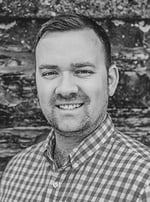“Champions don’t do extraordinary things,” according to Charles Duhigg, the author of The Power of Habit. “They do ordinary things, but they do them without thinking, too fast for the other team to react. They follow the habits they’ve learned.” Duhigg makes the case in his book that habits are the cornerstone of success in life and work. For an athlete or executive, the ability to leverage habits that create efficiencies and optimum performance environments is critical to success.
For most, all habits begin at the start of the day. Having a morning routine serves as a tone-setter for the events that follow. According to Northwestern Medicine, having a morning routine can help people be more productive and successful in many ways, including:
- Reducing stress
- Getting better sleep
- Improving health
- Having more time
Illumine8 founder and CEO, Christina May, is a firm believer in routine and says that when her routine gets off, “[her] whole day gets off.”
That’s why May starts each morning with as much of a routine as she can in order to prepare for the rest of her day. Despite not naturally being a morning person, May has evolved into one because of her role as a business owner over the last six-plus years.
An aspect of May’s morning routine that is popular among fellow CEOs is meditation. In fact, according to the Harvard Business Review, meditation benefits CEOs in many ways, including:
- Building resiliency
- Boosting emotional intelligence
- Enhancing creativity
- Improving relationships
- Helping focus
Furthermore, Everyday Health compiled a list of famous CEOs who use meditation regularly to help cope with the responsibilities of their critical roles, including Jeff Weiner, CEO of LinkedIn; William Clay Ford Jr., Executive Chairman of Ford Motor Company; Marc Benioff, Chairman and CEO of SalesForce; and Arianna Huffington, Cofounder of Huffington Post and Thrive Global. Even media proprietor, actress, and philanthropist Oprah Winfrey uses meditation on a daily basis to help her succeed in all of her endeavors.
May shares some insight into her own morning routine as well as her thoughts on starting the day off by meditating in our latest Q&A. She explains how having a morning routine helps her be more “centered” throughout the day and why it serves as a tone-setter for her daily tasks.
Q: How do you like to start your mornings to prepare for the workday?
A: “So my day starts kind of early. I like to get up before everyone else in my house because it’s quiet. I’m not naturally a morning person, but owning a company has made me out of necessity a morning person. I’m a big believer in routine. If my routine gets off, my whole day gets off.”
Q: Is there a specific morning ritual that helps start your day off on the right foot?
A: “I would say the one thing that’s part of my personal routine that gets my day off on the right foot is, one, not turning on any of my technology right away. That can be really distracting and it’s just this deep, dark, horrible rabbit hole that can suck your entire day away. But the other thing is meditation. If I can spend 10 minutes just keeping my mind quiet, I’m much more centered during the day. As I’m eating my breakfast, that’s when I sit down and actually flip open my iPad, and my first sense of accomplishment is cleaning out anything I possibly can, getting as much communication out before the actual active day starts, so before 9 o’clock. And at that point, I just come into the office. I have the world’s easiest commute by design and — you know, it’s about 20 minutes and I can get in a phone call or two if I need to on my way in.”
Q: What type of work environment is optimal for you?
A: “My optimal work environment is kind of two sides of a coin. I need quiet and I need isolation to do big projects. The reverse of that is I also do my best work when I’m collaborating with a team. So it really depends on the project. If it’s something that’s highly analytical, that’s a lot of research, requires a lot of architecture, that pre-work I really have to do by myself. But when it comes to creative ideas, really pulling together the fleshing out of something, especially on the creative side, I really feed off of having team members around me that, you know, we can throw ideas back and forth.”
Q: At what point in your day do you typically stop working?
A: “So for me, the day starts a little earlier than everybody; I have a regular day; and then at the end of the day, I usually have a couple hours afterward where, again, it’s that quiet time again where I can focus in and get a few things out. But there have been times where the day may pause at about 6:30 or so, and I go home and take care of dinner and those types of things, but I’ll probably be popping back on again, you know, 8:30-9 o’clock and putting an extra hour or so in, in the evenings as well. And that’s just my regular routine.”
Q: When you’re not working, what do you do to relax?
A: “When I’m not in the office, I like to do be doing anything but. I really like to do things with my hands; I like to build things. A lot of what we do is a lot of intellectual work, and all of my activities are the absolute opposite. Whether that’s gardening, or building, or renovating something, or traveling — my best inspiration comes from traveling and taking myself out of my environment. My work is the best when I come back because my perspective has been changed.”

